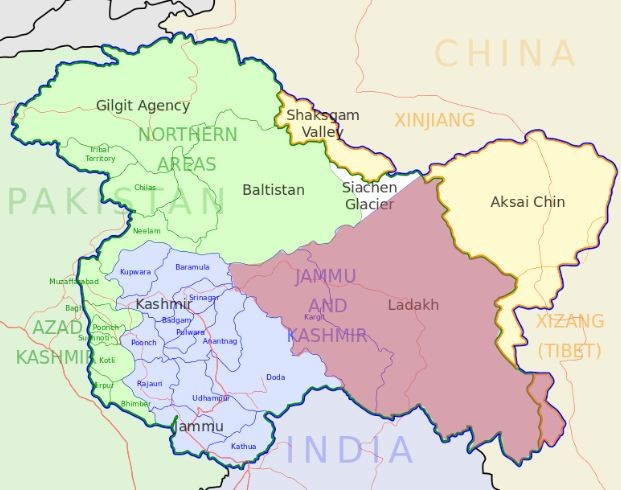The attack yesterday by Muslim terrorists on an Indian Army base in Kashmir that killed 17 "jawans" has had the geopolitical result of the United States standing squarely by India against Pakistan, which India accuses of being behind the attack.
Much to Pakistan's dismay, the U.S. said it is committed to a "strong partnership" with India to combat terrorism instead of calling on both India and Pakistan to avoid inflaming tensions, as was its usual response in past terrorist attacks on Indian forces.
"The United States strongly condemns the terrorist attack on an Indian Army base in Kashmir during the early morning of September 18," said State Department spokesman John Kirby.
"We extend our condolences to the victims and their families," he said. "The United States is committed to our strong partnership with the Indian government to combat terrorism."
The full-on expression of support by the U.S. is the latest indication of Washington's new world view of India as an indispensable ally in containing an aggressive China, whose rise is also undermining India's security. The U.S., however, did not blame Pakistan for launching the attack using its surrogates in Kashmir.
Some analysts believe the wording of the official U.S. statement is telling since it again uses the phrase "strong partnership" that echoed a similar phrase used by U.S. Secretary of State John Kerry at a recent news briefing in New Delhi.
Here, Kerry said the U.S. "cannot and will not make distinction between good and bad terrorism," a viewpoint similar to India's.
That statement was interpreted as a backhanded compliment to Pakistan that makes a distinction between good terrorists (or those it uses as an instrument of state policy such as the Lashkar-e-Taiba and Jaish-e-Mohammed against India) and bad terrorists such as the Pakistani Taliban responsible for unrelenting attacks on Pakistani soil.
The Kashmiris that attacked the army base at Uri are believed to be members of Jaish-e-Mohammed.
Some Indian observers said it was clear to the U.S. who was behind the attack on the Indian Army's base at Uri in Indian-controlled Kashmir despite the U.S. not naming names.
Pakistan is a hub of terrorism and is involved in subversive activities against India, claims Indian environment minister Prakash Javadekar.
"Pakistan has become a big center of terrorism and is resorting to subversive activities as it cannot win an open war with India," he said.
Bruce Riedel, a former CIA operative and long-time expert on the region said it's "been clear for several months that the Pakistan Army believes the situation in Kashmir is ripe for a re-intensification of the conflict and that India has few credible options to respond."
Michael Kugelman, a South Asia expert with the Wilson Center, said the attack might have been triggered by Prime Minister Narendra Modi's recent comments about human rights violations in Balochistan, the Pakistani province where an insurgency by the dominant Baloch people fighting for independence from Pakistan has been going on since 1948.



























